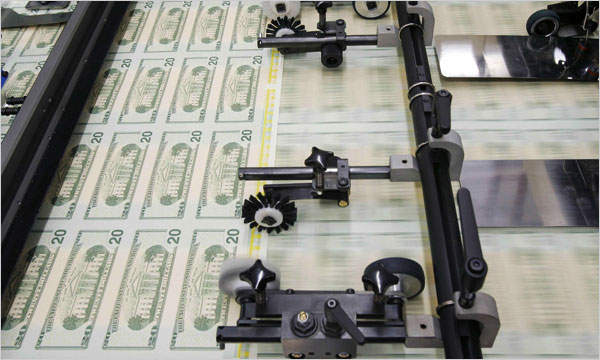Following QE2 I wrote a controversial piece that argued the Fed was not monetizing the debt. The purpose of the article was to show how the Fed was not increasing the net financial assets via QE or enabling the government’s fiscal policies. My argument was rather simple:
1) QE involves swapping reserves for bonds which results in no change in the private sector’s net financial assets. It merely changes the COMPOSITION of assets.
2) Monetizing the debt implies that there is not enough demand for government bonds and that the Fed needs to backstop the market for government bonds. This can’t be true though because the Primary Dealers are required to bid at auctions and would only reject this mandated duty in case of a hyperinflation where it became unaffordable for them to serve as the government’s funding agent. (This doesn’t mean inflation couldn’t result in currency and bond rejection!).
So I was extremely pleased to see Bernanke say the following this morning:
“By buying securities, are you “monetizing the debt”–printing money for the government to use–and will that inevitably lead to higher inflation? No, that’s not what is happening, and that will not happen. Monetizing the debt means using money creation as a permanent source of financing for government spending. In contrast, we are acquiring Treasury securities on the open market and only on a temporary basis, with the goal of supporting the economic recovery through lower interest rates. At the appropriate time, the Federal Reserve will gradually sell these securities or let them mature, as needed, to return its balance sheet to a more normal size. Moreover, the way the Fed finances its securities purchases is by creating reserves in the banking system. Increased bank reserves held at the Fed don’t necessarily translate into more money or cash in circulation, and, indeed, broad measures of the supply of money have not grown especially quickly, on balance, over the past few years.” (emphasis added)
Dr. Bernanke’s always understood this. The general public has gotten this colossally wrong though….For more on QE please see the understanding QE section on the site.
Mr. Roche is the Founder and Chief Investment Officer of Discipline Funds.Discipline Funds is a low fee financial advisory firm with a focus on helping people be more disciplined with their finances.
He is also the author of Pragmatic Capitalism: What Every Investor Needs to Understand About Money and Finance, Understanding the Modern Monetary System and Understanding Modern Portfolio Construction.


Comments are closed.